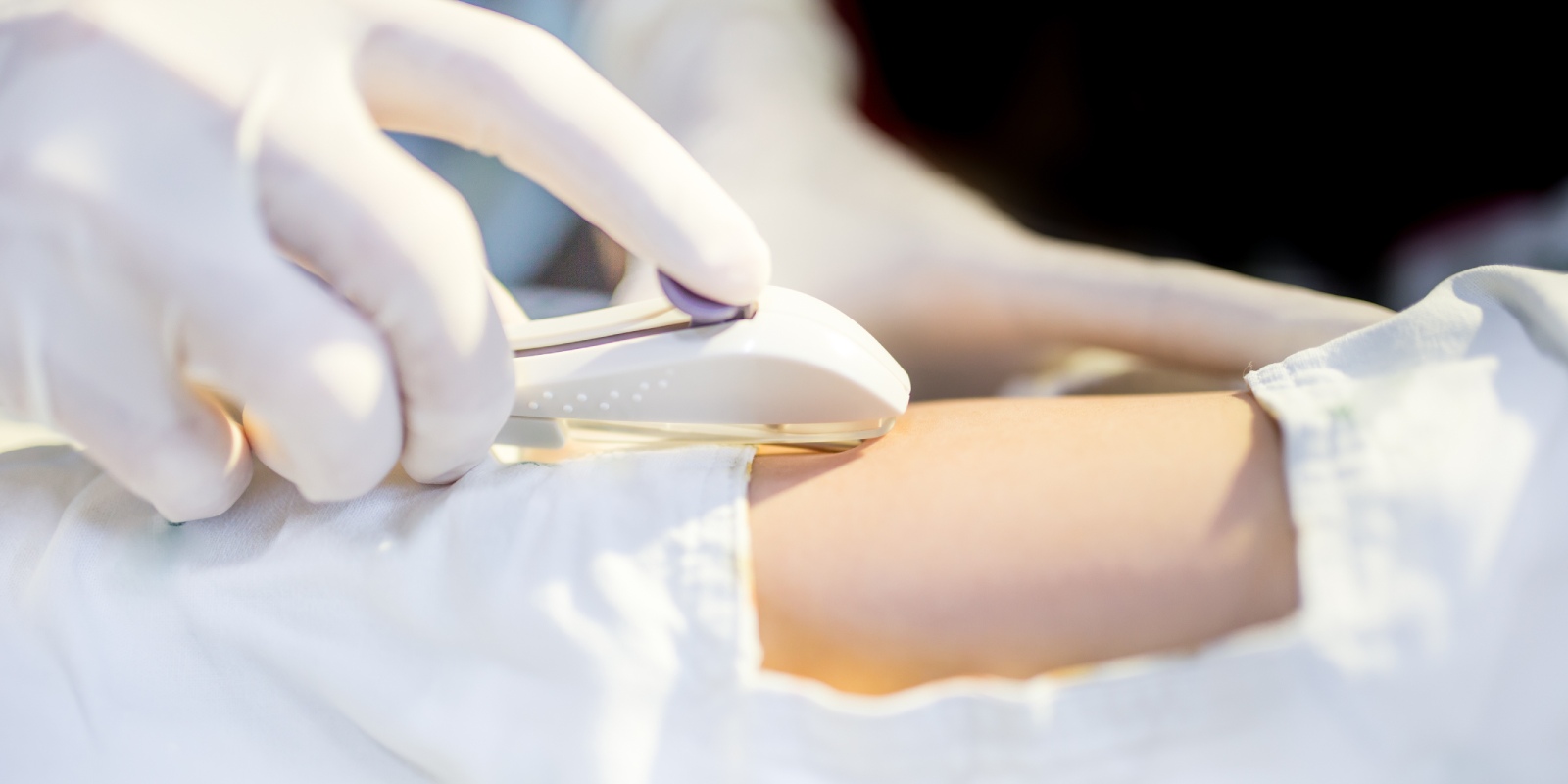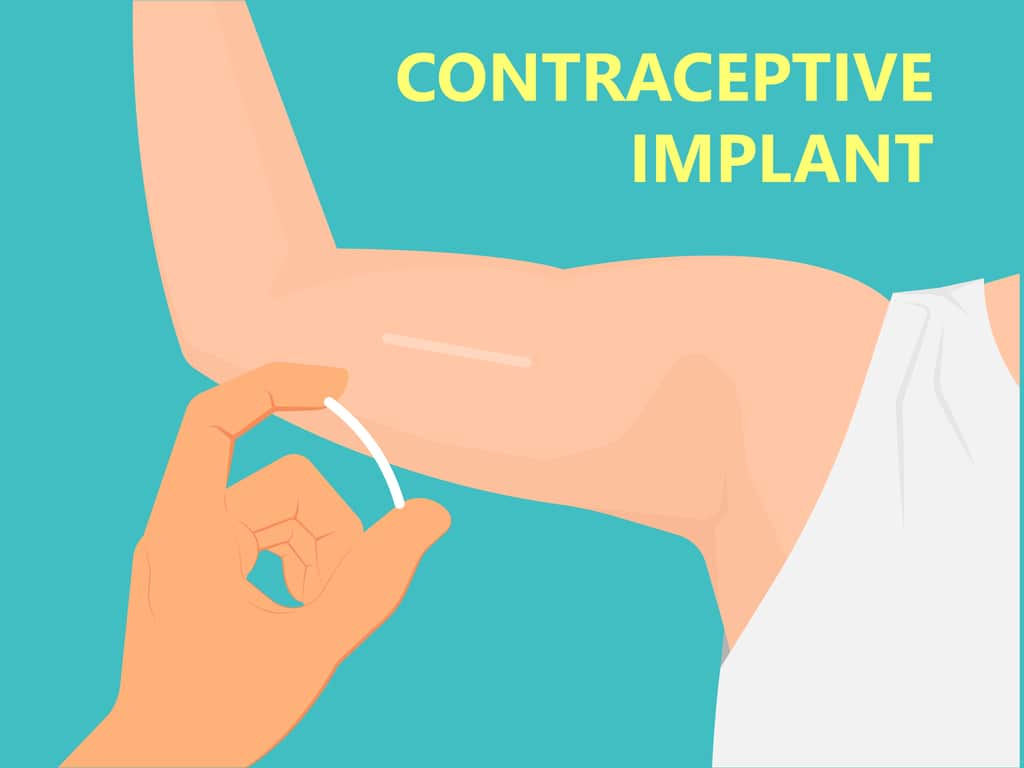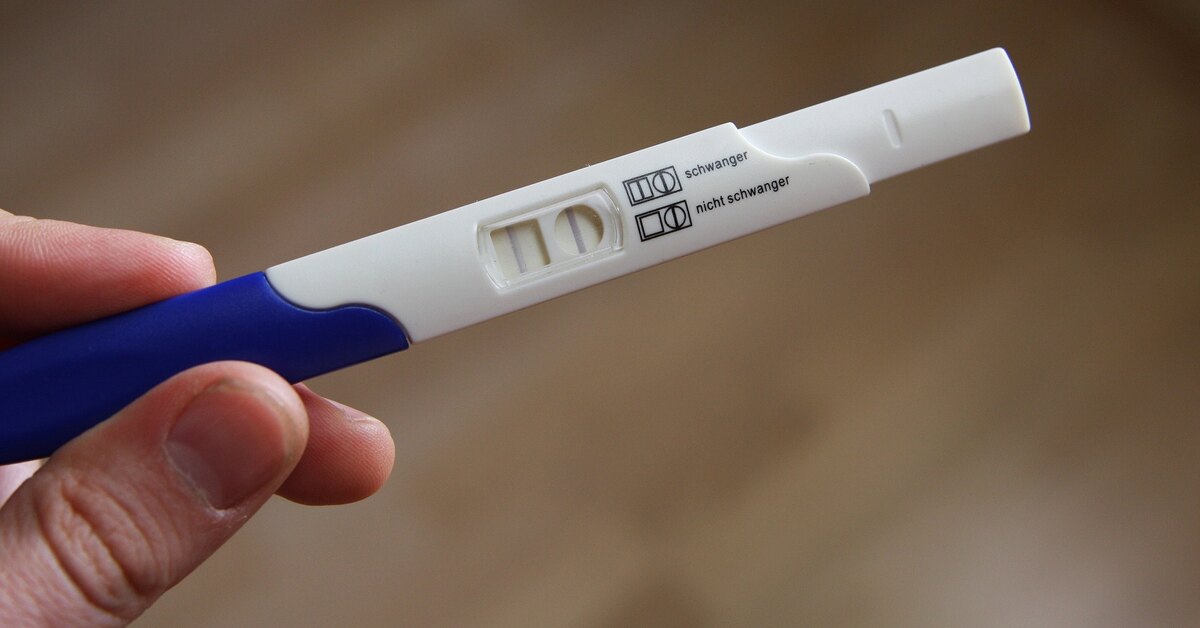IMPLANT, WHAT IS IT?
The contraceptive implant is a small flexible plastic rod that's placed under the skin in your upper arm. It works by releasing a hormone called progestogen into your bloodstream, which protects you against pregnancy. It protects against pregnancy for three years.
The two most common versions are the single-rod etonogestrel and the two-rod levonorgestrel implant.
Brands include: Norplant, Jadelle (Norplant II), Implanon, Nexplanon, Sino-implant (II), Zarin, Femplant and Trust.

WHAT ARE THE BENEFITS?
The implant is more than 99 effective. This means there is less than 1 in 100 chance of getting pregnant if you have it. Once it's in place, you don't have to think about it again for three years. This can be useful for people who find it difficult to remember to take a pill at the same time every day. You can have it removed at any time and your normal fertility will return quickly. If you have heavy, painful periods, you may find that the implant makes these lighter or stops them.
WHAT ARE THE POSSIBLE SIDE EFFECTS?
You may experience temporary side effects after it's fitted, like irregular bleeding, headaches, breast tenderness, and acne. These usually pass after the first few months. It doesn't protect against sexually transmitted infections, SDIs, so you may need to use condoms as well.
HOW IS IT FITTED AND REMOVED?
You can have the implant put in at any time during your menstrual cycle, as long as you're not pregnant. If the implant is fitted during the first five days of your menstrual cycle, you'll be immediately protected against becoming pregnant. If it's fitted on any other day of your menstrual cycle, you'll need to use additional contraception, like condoms for seven days. For the procedure, a local anesthetic is used to numb the area on the inside of your upper arm. The implant is then inserted under your skin by a specially trained doctor or nurse. It only takes a few minutes to put in and feels like you're having an injection. It shouldn't be very painful but you might feel a pulling or tugging sensation. You won't need any stitches after your implant has been fitted. It can be removed at any time by a doctor or nurse. It only takes a few minutes to remove and a local anesthetic will be used. The doctor or nurse will make a tiny cut in your skin to gently pull the implant out. There may be bruising and scarring with the fitting and removal. As soon as it has been removed, you'll no longer be protected against pregnancy. If you don't want to become pregnant seek advice on another form of contraception.

OTHER IMPORTANT THINGS TO KNOW
Some medicines can make the implant less effective. These include  medicines for HIV, epilepsy, and tuberculosis, some herbal medicine, such as St. John's wort. You can always ask the doctor or nurse you see if any medicine you're taking will affect it. In rare cases, the area of skin where the implant has been fitted, can become infected. If this happens, contact your GP, as you may need antibiotics. You should also visit a GP or sexual health clinic, if:
medicines for HIV, epilepsy, and tuberculosis, some herbal medicine, such as St. John's wort. You can always ask the doctor or nurse you see if any medicine you're taking will affect it. In rare cases, the area of skin where the implant has been fitted, can become infected. If this happens, contact your GP, as you may need antibiotics. You should also visit a GP or sexual health clinic, if:
- you can't feel it;
- the implant feels like it's changed shape
- you notice any changes to the skin or feel any pain at the site of it
- you become pregnant
WHERE CAN I GET THE CONTRACEPTIVE IMPLANT FITTED OR REMOVED?
You can get the contraceptive implant for free, even if you're under 16 at your local sexual health service. Some GPs are able to fit and remove implants. Contact your GP surgery to ask if this is a service they can offer. If you have any worries about your implant call your GP or sexual health team who can provide advice.
WHEN TO TAKE A PREGNANCY TEST AFTER IMPLANT REMOVAL?
The question of how quickly you can get pregnant after a contraceptive implant is largely up to you - your health, your hormones, your menstrual cycle, and your attempts to get pregnant. For any brands such as Norplant, Jadelle (Norplant II), Implanon, Nexplanon, Sino-implant (II), Zarin, Femplant and Trust.
Clinical studies show that you can get pregnant as early as 7-14 days after implant removal.
A mistake during the removal of the implant from the skin can also affect the recovery time of fertile function of the woman.
In this case, it may take several months before a woman has a chance to get pregnant.
In light of this information, it is worth paying special attention to the medical center and the personnel who will install and remove the implant from your body.
Also, we strongly recommend you to use contraception after removal of the implant, if you and your partner are not planning to have a baby in the near future.
You must understand that removing it leaves you unprotected from an unwanted pregnancy from the first days.
Since you can become pregnant from the very first days after implant removal, we recommend you to take a test after 7-14 days, or sooner if your menstrual cycle has not started in time.

Contraceptive implants have been shown to be highly effective and have few side effects, and the ability to become pregnant as soon as possible after removal has made them especially popular with women, especially in the United States.
MEDICAL DISCLAIMERThis content is for informational and educational purposes only. It is not intended to provide medical advice or to be a substitute for such advice or treatment by a personal physician. All readers of this material are advised to consult their own physicians or qualified health care professionals. UAmedTOURS is not responsible for the possible health consequences to any person or persons reading or following the information contained in this educational content. All readers of this content, especially those who take prescription or over-the-counter medications, should consult their physicians before making any changes in their diet, lifestyle, taking pills, or other facts that may affect your physical and psychological health.









